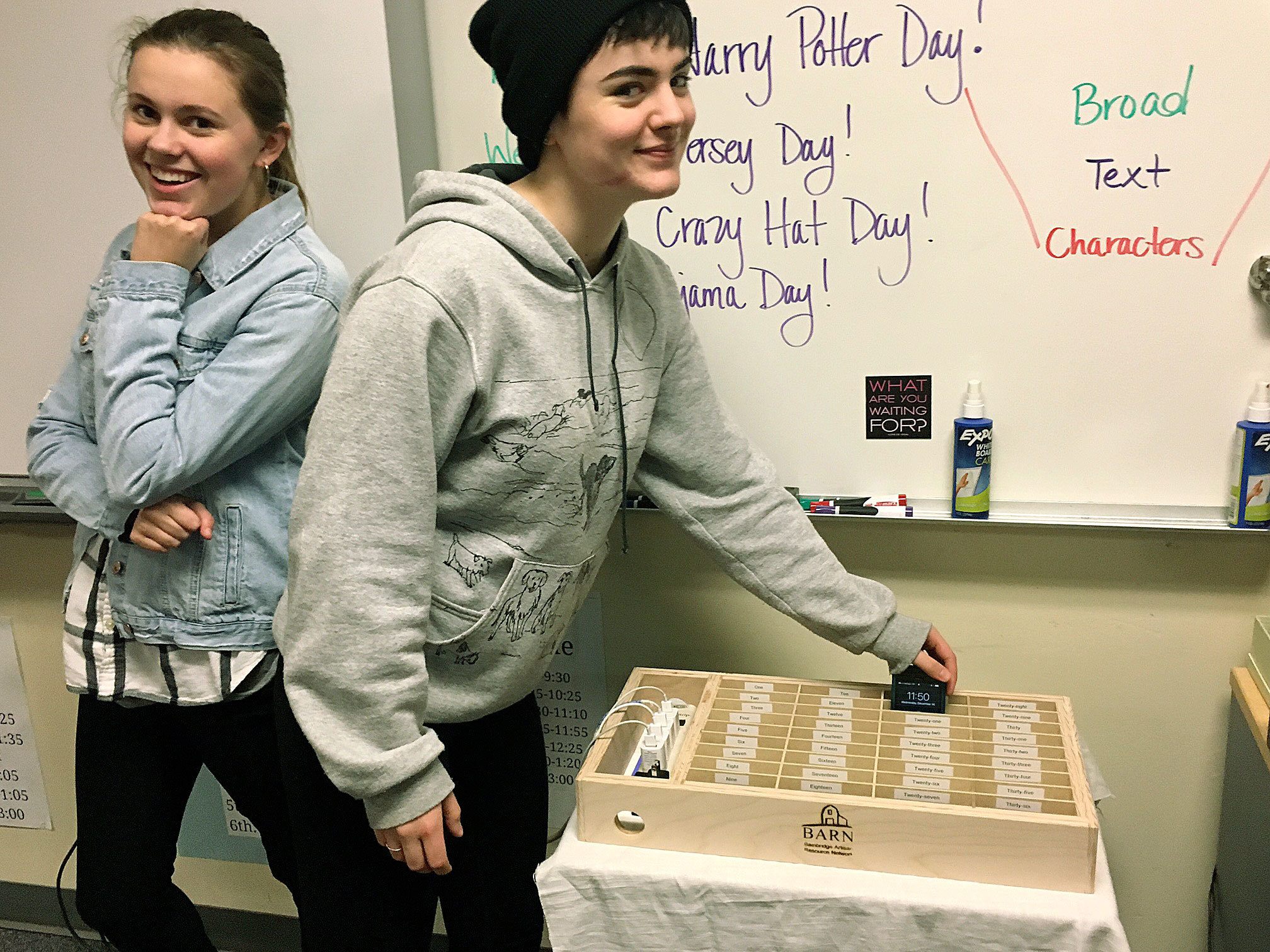You’ll have to kiss texting goodbye to take Jillian Price’s 10th-grade English class.
The no-nonsense Eagle Harbor High School teacher has designed a cellphone caddy with the help of BARN woodworker Dave Whitacre to ensure students aren’t distracted by their pocket technology.
At the beginning of class, Price collects everybody’s mobile devices and stores them in her hand-hewn wooden container, which has a slot for a surge protector, so students can charge their phones. She says that amenity helps cut down on complaints. Those that don’t relinquish their devices, if caught, lose privileges for the entire day. And to ensure a buzz of activity doesn’t cause students to squirm, Price sets the screens facing the whiteboard.
Price credits her friend Noah Barfield for inspiring her innovation. The Bainbridge High teacher, who has his own calculator caddy, suggested Price reach out to the Bainbridge Artisan Resource Network for help.
“I had no idea what that was,” Price said about BARN. But Google presented her with an email address and soon Whitacre was on board. Besides his handiwork, he donated all the materials for the phone holders, which were completed in September.
“I just want to give a big, public thank you,” Price said. “This has been a major help!”
Students were less excited about the project.
Tracy Tyler, a sophomore, said that she didn’t like that her phone was sitting out with the possibility of someone reading all her texts, although she admitted that the measure probably helped her focus.
Emma Bonifield said handing over her phone made her feel like her teacher didn’t trust her. (She had had her device taken away earlier that day.)
“In English class, we do a lot of work that’s measurable, so it’s not helping yourself out if you’re on your phone,” Bonifield commented. “You’ll just have to take work home.”
Still, the policy might work well for geometry and other lecture-style classes, Bonifield suggested, where there is less incentive to stay attentive. Tyler wasn’t so sure. “If someone wants to find a way not to pay attention, they’re going to find a way not to pay attention,” she said.


